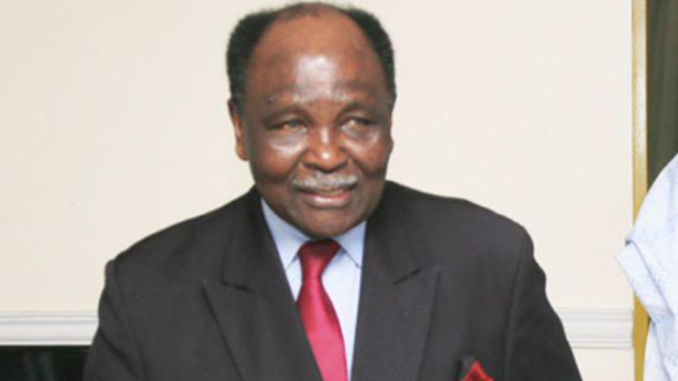
FORTY-EIGHT years after escaping from a bloody three-year-long civil war, Nigeria seems to be inching precipitously towards another internecine implosion. At the heart of the current debacle is the high level of killings, insecurity, economic distress and base politics. Going by the fresh warning from elder statesman, Yakubu Gowon, bordering on the drift to anarchy, it elicits serious concern about the continued peaceful co-existence of Nigerians. The new-fangled descent into chaos is a sign that lessons inherent in the civil war, fought “to make Nigeria one,” have not been learnt.
Gowon, a retired Army General and head of state during the 1967-1970 bloodbath, is one of those alarmed that the political class has ignored the horrific lessons from that perilous era. He, like many other Nigerians, is disturbed “by the spate of killings across the country.” Gowon’s misgivings about the Nigerian project are accurate, but his solution is not. The country is descending into a farce. The issues cannot be resolved by mere platitudes. Unlike Gowon, Theophilus Danjuma accused the military of being biased and called on individuals to defend themselves. With courage, Gowon should also say so bluntly.
Though technically not at war, the widespread killings imply strongly that the country is dangerously close to one. In the North-Central region, Fulani herdsmen coldly slaughter the locals. Taraba, Southern Kaduna in Kaduna State and Zamfara are floating on blood. On Saturday, bandits raided Gwaska village, Birnin-Gwari Local Government Area, Kaduna State, slaughtered 71 persons and torched their homes. A week earlier, bandits had killed about 35 persons in the same LGA.
Benue State is the worst hit. The situation there is nothing but ethnic cleansing. In late April, herdsmen invaded St. Ignatius Quasi Catholic Church parish in Ukpor Mbalon, Gwer LGA, during its morning mass. There, they callously murdered two priests – Rev. Frs. Joseph Gor and Felix Tyolaha – and 17 other worshippers. This is the height of impunity. Right from January 1, herdsmen massacres in Guma and Logo LGAs have gained a dangerous momentum. The state buried 73 persons after those mindless attacks. Strangely, the attackers are not subjected to the law.
The killings are assuming a sectarian tone with protests by churches against the murderous acts. Amnesty International noted that 168 people were killed in herdsmen attacks in the first three months of the year, while a media report listed 1,358 deaths in the first 10 weeks of 2018.
The Boko Haram insurgency, which has rendered the North-East prostrate, is generating enormous tension. The Islamist insurgency has claimed about 100,000 lives, says Governor Kashim Shettima of Borno State. There are two million internally-displaced persons, said President Muhammadu Buhari. Ironically, the security agencies seem helpless in arresting the drift. A government that came into power with the mantra of change has ended up dividing the people the more with its lethargic and sectional handling of serious security breaches.
With high youth unemployment and an economy near comatose, there is general despair in the land. The Buhari government is careless in handling the crisis. For this inertia, Nigerians point to Buhari’s sectional appointments in which his inner security circle is peopled by those of his ethnic and religious background. They see the wanton massacres from their own viewpoint alone. For instance, the Minister of Defence, Mansur Dan-Ali, outrageously claimed that Fulani herdsmen killings occurred because the farmers blocked their age-old grazing routes.
The political institutions are weak. The National Assembly members are living in a false cocoon: the legislature is a self-serving establishment of corruption and conspiracy. Lawmakers silence in the unfolding political meltdown is evident. They rail against the executive when their personal interests are concerned, but are not ready to legislate for the common good. For running costs alone, senators take home N13.5 million each monthly.
The other side of the coin is grim: another civil war. The hard-pressed victims in the North-Central will not fold their arms forever. Without restructuring the country, insecurity, the Boko Haram terror, social tension and infrastructural decay will not abate.
All entreaties to make the Buhari administration reverse its lethargy have thus been ignored. The outcome is the relentless agitation. In a multi-ethnic society, this can only come through restructuring or a return to federalism. True federalism – in contrast to the current pseudo-federal or unitary structure – is anathema, which some sections of the country see as a way to dismember the country. It is not.
In multi-cultural societies, rationality dictates the choice of the political structure. After the American Civil War of 1861 to 1865, common sense prevailed. The war was provoked by the obduracy of the 11 southern states’ insistence on slavery, which drove them to declare secession. At the end of the war, the United States instituted an enduring federal system to accommodate its diversity and prevent another occurrence of internecine wrangling. That federal system has sustained the country for over two centuries. Canada, with French and English nationalities, is being sustained by a federal system of government, as are Australia and India.
Regrettably, the Civil War has yet to transform Nigeria from a country to a nation. Instead, it is drifting apart needlessly. To change the ugly tide, Gowon and other elder statesmen have to pluck up the courage, speak truth to power and demand from those who control the levers of power to enthrone restructuring.
END

Be the first to comment